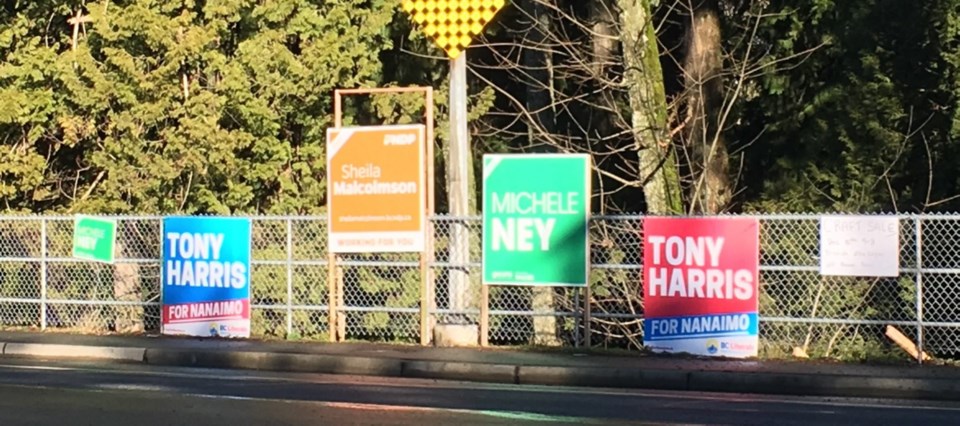If the NDP loses Wednesday’s byelection, the government could decide to call a general election this year, says a Royal Roads political scientist.
Questions about the implications of a Liberal win arise as the Liberals and NDP face off in a vote that could result in a deadlock in the legislature. A poll released Monday places the Liberals in the lead over the NDP in Nanaimo, a traditionally strong NDP riding.
From the perspective of a government in a deadlock position, “Do you let your government fall to the next inconvenient confidence vote?” David Black, associate professor in the school of communication and culture at Royal Roads University, said Monday.
“And we know that we have a budget coming up and a confidence vote there ... in February.”
“Or do you seize the initiative and say, ‘Rather than let my government fall through some confidence vote, I am going to bring this to the people.’ ”
> For more on the Nanaimo byelection, go to timescolonist.com/bcelection
The byelection was called to fill the vacancy left by Leonard Krog, who stepped down as an NDP MLA last year after running successfully for mayor of Nanaimo.
If Liberal candidate Tony Harris wins, then his party will hold 43 seats. That result would give the NDP-Green alliance 43 seats as well, leaving Speaker Darryl Plecas to cast tie-breaking votes.
A Harris win could well prompt the government to think that rather than losing a confidence vote in the next six months to one year, it might choose to “seize the initiative, own the narrative and call an election,” said Black. “This is one of the reasons that the byelection is going to be very consequential.”
Black said that under that scenario, he would not be surprised if we were in an election campaign in the summer or fall.
If the NDP candidate, former MP Sheila Malcolmson, wins, then the government is expected to continue under the current NDP-Green alliance.
Black said the role of the Speaker in a deadlocked situation is set out by British parliamentary tradition under a convention established by John Evelyn Denison, who served as Speaker in the British House of Commons in the 1800s. “Normally the Speaker votes to either continue debate, votes against a confidence motion and generally speaking, the Speaker, no matter what party he or she comes from, supports the government in power,” Black said.
If a Liberal win occurs, every vote in the B.C. house would bring in the Speaker as a tie-breaker and normally Speakers don’t vote at all, Black said..
“It puts Plecas in a very difficult position where he’s the referee and yet he’s always voting. It really stretches his obligation as Speaker to preserve government.”
Black said he doubts that Plecas would keep a government going for a few years on his own.
“There’s a deeper obligation to responsible government here, to a legislature that really supports the government in power.”



